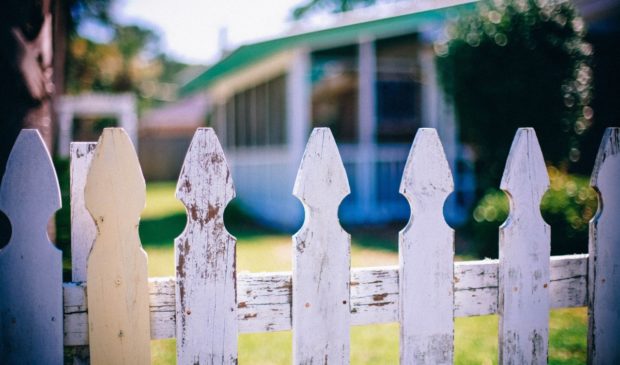Council raises homestead exemption to 10%
Friday, June 15, 2018 by
Jo Clifton On a vote of 7-4, Council on Thursday approved raising the homestead exemption from the current rate of 8 percent to 10 percent for the coming year.
The resolution’s sponsors included Council members Ellen Troxclair, Leslie Pool, Ann Kitchen and Ora Houston. Mayor Steve Adler and Council members Alison Alter and Pio Renteria joined the sponsors in approving the measure.
Council members Greg Casar, Delia Garza and Jimmy Flannigan and Mayor Pro Tem Kathie Tovo opposed the measure, as they have in the past.
Thursday’s vote represents final passage of the resolution. With fewer votes, it would have been necessary for Council to vote on the item again at its June 28 meeting.
Deputy Chief Financial Officer Ed Van Eenoo told Council that with the current projected property tax rate of $0.4333 per $100 of taxable value, staff was projecting a reduction in property tax revenue of $4.8 million. At that rate, the projected annual bill for a typical homeowner would drop to $1,286.71, a decrease of $28.59.
Several speakers, including Rabbi Alan Friedman representing Austin Interfaith, urged Council to reject the increased exemption, unless it could be shown that the increase would not negatively impact Austin’s most vulnerable citizens. Other speakers encouraged Council to adopt the 10 percent exemption, and several referenced the 20 percent goal Adler cited when he first ran for office.
Adler drew a laugh from the audience when he said, “I will tell you that when your rabbi comes in to testify against your position it does give you pause.” Nevertheless, he said he was supporting extension of the homestead exemption because he promised four years ago that he would support that increase if it could be done in a revenue-neutral way. The city’s financial position now allows that to happen, he said.
One major point of contention between supporters and opponents of the exemption was about the fairness of giving homeowners, as opposed to renters, a tax break.
Flannigan, who said he is the only renter on Council, told his colleagues, “This action would literally ask me to subsidize all of your homes: me, personally – because the taxes would be shifted from homeowners to multifamily owners. Those tax increases get passed down to the renters. I don’t think it makes a strong statement to give somebody a $20 tax cut, when you consider that it is very likely … that that $20 tax cut to an average homeowner represents a $10 tax increase to two renters.”
But Adler said that was a false dichotomy.
The homestead exemption, he said, is the only tool this state offers to shift the tax burden from residential to commercial properties. Most of the commercial properties in the city are not residential buildings, Adler said. “It’s retail, it’s industrial, it’s office.” While some cities have a bifurcated tax structure so that commercial properties and residential properties pay at different tax rates, Texas does not allow that, he said.
“The impact of a 2 percent increase in the property tax exemption, when it’s applied to a multifamily building, when it’s applied on a per-unit basis, is so small that I have never seen data that would suggest that it would result in an increase in rent. The affordability challenges in this city are hitting lots of people – it’s hitting people at the lowest end, the most in need, but it is also hitting people in the middle, as well. We need to do everything we can to help those at the lowest end because they are the most in need, but it is important that this Council, I believe, demonstrate that we hear everyone in our community. Because when we demonstrate that wider concern, we build allies across the community for the work that we do prioritizing community benefits.”
Garza said she never campaigned on raising the homestead exemption. Tax relief is important, she said, but the homestead exemption is not the way to do it. She was one of several Council members who pointed to the state’s system for collecting taxes for schools as the major driver to blame for Texans’ continuing increase in taxes.
Using her own property tax bill is an example, Garza demonstrated how much she and her husband are paying in property taxes to each entity, starting with the Austin Independent School District. As with everyone, AISD gets the lion’s share of that tax bill, but, of course, the state takes a good chunk of that money for redistribution.
Kitchen said, “In the climate right now, when we’re talking about affordability and people’s ability to own a home and to continue to live in the community, property tax (relief) is a component of that. It is certainly not a silver bullet, but it is a component.”
David King, a member of the Zoning and Platting Commission and former president of the Austin Neighborhoods Council, told Council he supports increasing the exemption.
King said, “I understand that there is concern about this increase, but there is no doubt that this increase will help thousands of low- and middle-income families that do own homes. And yes, it’s going to help wealthier families, too, but we can’t really stop that part of it. The state doesn’t give us the tool to do that, and I know if we had that tool, that’s probably what you would do.” He ended by urging Council to not let a perfect solution, which was not available to them, be the enemy of a good solution.
Renteria said he bought his house 38 years ago for $21,000. “And now they say it is worth $520,000.” He said, “It’s a very difficult situation because I know there’s a big need out there.” He said it was important to him to not raise the tax rate and asked Van Eenoo to explain how the city proposed to do that.
Although several people complained about the loss of money to the budget, Van Eenoo told the Austin Monitor that $5 million represents just one half of 1 percent of the general fund’s $1 billion budget.
Troxclair has made increasing the homestead exemption a priority throughout her tenure on Council. She is the only Republican currently serving, and she will face at least three opponents in November, all of them liberal Democrats.
She offered this comment via text after the vote: “Homeowners across the city will now benefit from a 10% discount in their city taxes. For a home valued at around $300,000 per year, that’s about $140 in savings. This amount will double if the council continues towards the widely supported 20% exemption allowed under state law. In a city where people are being pushed out of their homes because of rising property taxes, this is welcome relief. Residents are constantly being faced with rising taxes and fees and this is one way for us to help slow gentrification and give the average homeowner a break.”
In the initial ordinance passed in 2015, several on Council voiced a desire to reach a 20 percent exemption over four years. They managed to raise the exemption to 8 percent in 2016, but in 2017 Troxclair could not find even a second sponsor on the item.
This story has been changed to clarify the remarks made by Rabbi Alan Friedman.
The Austin Monitor’s work is made possible by donations from the community. Though our reporting covers donors from time to time, we are careful to keep business and editorial efforts separate while maintaining transparency. A complete list of donors is available here, and our code of ethics is explained here.
You're a community leader
And we’re honored you look to us for serious, in-depth news. You know a strong community needs local and dedicated watchdog reporting. We’re here for you and that won’t change. Now will you take the powerful next step and support our nonprofit news organization?






